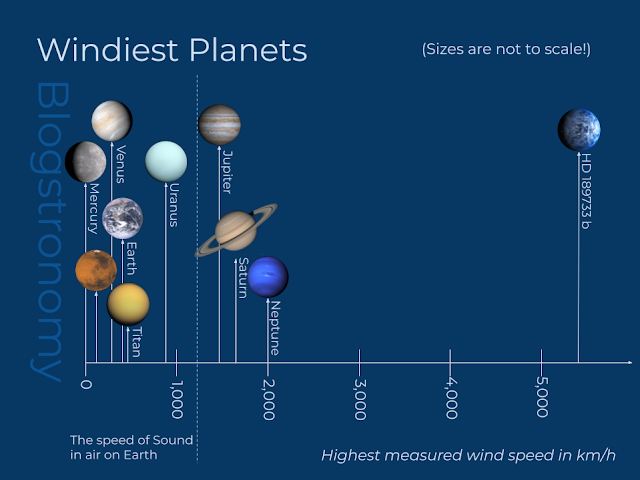What Has the Moon Ever Done for Us?
How does the Moon affect the Earth? - Question posed by Priyanka.
Today...
The most noticeable effect that our Moon has on the Earth is that of the tides. Strictly speaking, tidal forces work on any matter in a system involving two bodies such as that of the Earth and the Moon. We see this effect most obviously in the seas of our planet as water around coastlines rises and falls each day. This effect (which I have blogged about in more detail here) is causing the Moon to move further away from us and, more relevant to the question asked at the beginning of this post, slowing down the Earth's rotation.
The Moon also affects the Earth's orbit around the Sun. Due to effects discussed in this post, the Earth follows a slightly wobbly path around the Sun. Also due to the gravitational interactions of the Earth, Sun and Moon, both the speed and axis of rotation of the Earth change slightly but noticeably over time which affects the seasons (although these cycles take tens of thousands of years to complete).
In the past...
The Moon may even have had an effect on life on Earth, right from its very beginnings. It may be that the Moon protected Earth from some of the asteroids and comets hurtling through the inner solar system, giving life a better chance to form and evolve.
The tides, already discussed, may have had an effect on life, too. It is well known that life probably developed in the seas of the early Earth and then made its way onto land from there. The tides provide a middle ground between the two (the 'inter-tidal zone'), and this may have helped life to gain a footing on land.
The Moon will most likely have had an affect on the evolution of certain forms of life simply by changing the light levels available at night: nocturnal creatures often have large eyes to make use of this night-time light source. If the Moon wasn't there, it may have been the case that nocturnal animals had no use for eyes at all!
Once life began to develop intelligence, maybe the Moon encouraged thinkers to look up and wonder about their place in the world. Maybe the Moon, with it's cool, easy on the eye nature and readily apparent surface features, did more to promote thinking about the wider universe than the firey, dangerous to look at Sun ever could.
In the future...
It could affect us more in the future, by acting as our first stepping stone out into space. Landing on the Moon, and maybe even living there, could teach us things we need to know if we're going to go further. Beyond that, it could be a launchpad for going into space, making the leap into the unknown cheaper and easier than it is from Earth.
Today...
The most noticeable effect that our Moon has on the Earth is that of the tides. Strictly speaking, tidal forces work on any matter in a system involving two bodies such as that of the Earth and the Moon. We see this effect most obviously in the seas of our planet as water around coastlines rises and falls each day. This effect (which I have blogged about in more detail here) is causing the Moon to move further away from us and, more relevant to the question asked at the beginning of this post, slowing down the Earth's rotation.
The Moon also affects the Earth's orbit around the Sun. Due to effects discussed in this post, the Earth follows a slightly wobbly path around the Sun. Also due to the gravitational interactions of the Earth, Sun and Moon, both the speed and axis of rotation of the Earth change slightly but noticeably over time which affects the seasons (although these cycles take tens of thousands of years to complete).
In the past...
The Moon may even have had an effect on life on Earth, right from its very beginnings. It may be that the Moon protected Earth from some of the asteroids and comets hurtling through the inner solar system, giving life a better chance to form and evolve.
The tides, already discussed, may have had an effect on life, too. It is well known that life probably developed in the seas of the early Earth and then made its way onto land from there. The tides provide a middle ground between the two (the 'inter-tidal zone'), and this may have helped life to gain a footing on land.
The Moon will most likely have had an affect on the evolution of certain forms of life simply by changing the light levels available at night: nocturnal creatures often have large eyes to make use of this night-time light source. If the Moon wasn't there, it may have been the case that nocturnal animals had no use for eyes at all!
Once life began to develop intelligence, maybe the Moon encouraged thinkers to look up and wonder about their place in the world. Maybe the Moon, with it's cool, easy on the eye nature and readily apparent surface features, did more to promote thinking about the wider universe than the firey, dangerous to look at Sun ever could.
In the future...
It could affect us more in the future, by acting as our first stepping stone out into space. Landing on the Moon, and maybe even living there, could teach us things we need to know if we're going to go further. Beyond that, it could be a launchpad for going into space, making the leap into the unknown cheaper and easier than it is from Earth.



Comments
Post a Comment